Tour Tibet in September
------The Golden Autumn Months
Autumn comes to Tibet in September and the grasses are turning from green to yellow, making Tibet like a rainbow with a wide range of colors. Tibet always presents a distinct natural landscape in autumn. The charming natural landscapes of mountains and lakes on Tibet Plateau in September keep attracting a large number of tourists. It is also the harvest season for Tibetan people in farming areas. How about making a Tibet tour in September and October to share the joy of harvest with them?
The temperature in Tibet is becoming cooler from hot, but it is not very cold in Tibet during Sep. and Oct. The sky is clear, clouds are pale, air is fresh and temperature is comfortable. It is still a great time to trek in Tibet and watch all kinds of wild animals on the Tibetan plateau.
It is said that the oxygen content in the air on Tibet Plateau is much higher compared of that in the other seasons. You will feel quite comfortable to go anywhere of Tibet, especially the sacred Mt. Kailash and holy Lake Manasarovar, Namtso Lake and Mt. Everest.
-
Sep:0℃ ~ 20℃
Oct:8℃ ~ 17℃
-
Sep:8℃ ~ 20℃
Oct:1℃ ~ 16℃
-
Sep:5℃ ~ 16℃
Oct:-3℃ ~ 8℃
-
Sep:0℃ ~ 20℃
Oct:-7℃ ~ 19℃
-
Sep:0℃ ~ 12℃
Oct:-7℃ ~ 7℃
-
Sep:18℃ ~ 27℃
Oct:14℃ ~ 25℃
Tibet Small Group Tours Available in Sep.
-
6 Days Travel to Sky Lake - Lhasa and Lake Namtso Small Group Tour
Tour Route: Lhasa - Namtso Lake - Damxung - Lhasa
Almost all the itineraries covering Everest Base Camp originate from this classic itinerary. The travel route to EBC involves all the awe-inspiring attractions, religious sites and magnificent natural wonder.
From USD 779 p.p
View DetailsAvailable Departures -
5 Days Lhasa to Yamdrok Lake Small Group Tour: Take a 360° Tour and Visit the Loneliest Temple in the World
Tour Route: Lhasa - Yamdrok Lake - Lhasa
Almost all the itineraries covering Everest Base Camp originate from this classic itinerary. The travel route to Everest Base Camp involves all the awe-inspiring attractions, religious sites and magnificent natural wonder.
From USD 689 p.p
View DetailsAvailable Departures -
10 Days Lhasa to Everest Base Camp and Namtso Lake Small Group Tour G318
Tour Route: Lhasa - Gyantse - Shigatse - EBC - Shigatse - Lhasa - Namtso Lake - Damxung - Lhasa
The travel route to EBC & Namtso Lake involves all the awe-inspiring attractions, religious sites and magnificent natural wonder in Tibet.
From USD 1688 p.p
View DetailsAvailable Departures
Most Popular Private Tibet Tour Itineraries for Traveling in Sep.
-
15 Days Kailash Pilgrimage Small Group Tour
Tour Route:Lhasa-Mt.Everest-Mt.Kailash-Lake Manasarova
The trip includes all the best destinations that tourists crave, including the majestic Potala Palace, monasteries, lakes, glaciers, Everest Base Camp, the holy mountain Kailash and the holy lake Manasarovar.
-
6 Days Lhasa and Namtso Lake Tour
Tour Route:Lhasa - Namtso Lake
If you want to explore the mysterious religious culture of Tibet while not missing out on its natural beauty, we recommend choosing the Lhasa and Namtso Lake tour.
-
8 Days Lhasa Shigatse and Namtso Tour
Tour Route:Lhasa - Shigatse - Namtso Lake
We will visit the two largest cities and the most beautiful lake in Tibet together with you – Lhasa, Shigatse, and Lake Namtso, allowing you to experience the vibrant culture of Lhasa, Shigatse, and Gyantse, as well as the vast heavenly lake of Tibet.
FAQs about Tibet Tour in Sep.
Will it snow often in Jan. and Feb.? And where to enjoy snow in Tibet?
Snow in Tibet depends on where you are. Lhasa does see snow in winter, though normally it is only a light dusting that barely covers the ground. In some years the snow can be heavier though, and it is really pot luck for heavy snow in the capital. However, across most of central and western Tibet, January and February are ideal for seeing snow on the plateau.
How about the road condition in winter? What should I do if the road is blocked by heavy snow?
Many of the major roads in Tibet in the winter months are still fairly clear of snow, especially around Lhasa. With better road conditions across the plateau, it is still possible to travel all the way to EBC without getting stuck in snow.
However, there are some routes that may be blocked by snowfalls, especially on the higher passes. These are normally the colder areas, such as the pass over the Nyenchen Tanglha Mountains to Lake Namtso, and the road to Ngari and Mount Kailash. The pass at Drolma La, on the Kailash Kora trek, is usually blocked by snow in the depths of winter.
Is it too cold to visit Tibet in winter? And what to wear?
While temperatures in the region can drop as low as -15 degrees in the most remote places, the major tourist destinations are normally sunny in the daytime, with temperatures above freezing. In Lhasa, it can reach up to 7-8 degrees, while in Shigatse, 6-8 degrees is normal. Even at EBC, you can expect to see temperatures as high as 4-5 degrees during the daytime. You should plan on bringing warm clothing for the trip, and layers to help you keep warmer more easily. Down or fleece jackets are a must, and you will need to have warm hats and gloves, as well as thick socks and long underwear.
Will Tibet hotels provide heating in winter?
If you are staying in Lhasa, Shigatse, and the busier and larger towns in Tibet, you can expect to have heating in the hotels. Many of the hotels have air-conditioning for heating throughout the year, and only the more remote and lower quality establishments will not have heating. Monastery guesthouses and tent guesthouses, such as at EBC, often have no heating to keep you warn at night.
What are the best festivals to enjoy in Jan. and Feb.?
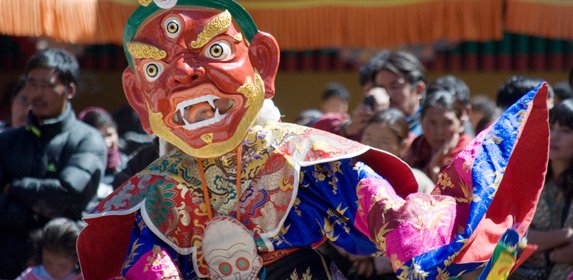
The Tibetan New Year, also known as Losar Festival, is the most important festival on the Tibetan calendar. Based on the Tibetan Calendar, annual New Year celebration begins on December 29 and lasts 2 weeks.Tibetan New Year offers the travelers a great opportunity to enjoy the annual festive occasion with local Tibetans.
During the festival, people celebrate by some ancient ceremonies which represent the struggle between good and evil. Lamas are chanting and passing fire torches through the crowds. People perform the dance of the deer and amusing battles between the king and his ministers, and so on, people are cheering for the coming new year by dancing, singing, and merrymaking.
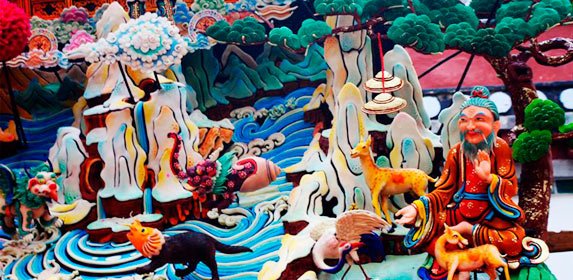
An annual exhibition of butter sculptures was held in celebration of the Chinese Lantern Festival in Taer Monastery, a prominent monastery in northwest China's Qinghai Province. With delicate handmade yak butter sculptures, the exhibition has attracted up to 150,000 masses and visitors from all ethnic groups on Chinese Lantern Festival, the climax of Chinese New Year celebrations on the 15th day of lunar January.
The Tibetan butter sculpture has derived its name from yak butter, which is sculpted into various shapes such as Buddha, religious characters, landscapes, pavilions, animals, flowers and trees.
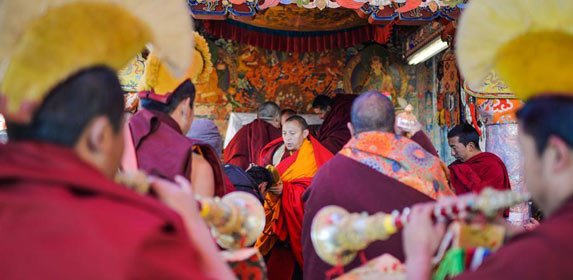
Sera Bengqin Festival is a traditional religious event and it is annually hold four days before Losar in the Sera Monastery in the northern suburb of Lhasa (Lhasa is the capital city of southwest China’s Tibet Autonomous Region). And the ritual has been held exclusively at Sera Monastery for centuries since it was first initiated in the 17th century.
As a tradition, the pilgrims held pure white hada, a traditional scarf, in hand and prayed while moving slowly in the kilometer-long line outside of the monastery. They eventually proceeded to the Vajra Pestle, a treasure of the monastery, for the blessings. The Vajra Pestle was originally a weapon from India and it was introduced as a Tibetan Buddist ritual instrument in the late 15th century.
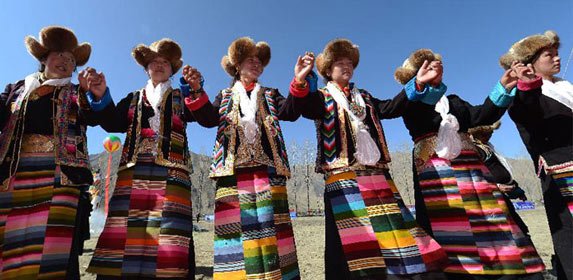
A saying says that the whole year's work depends on a good start in spring. Thus, Spring Sowing Festival in Tibet is an important traditional festival for Tibetan farmers. Tibetan Spring Sowing Festival will be held on an auspicious day in the first month of New Year for the celebration of the calf tying to plough for the first time.
Spring Sowing Festival is also known as the Sowing Seed Festival and experimentally Sowing Festival. If you travel to Tibet during the Spring Sowing Festival, you will experience the traditional festive atmosphere with local Tibetans.
Can I celebrate Tibetan New Year Festivals with local family?
If you want to visit a local family to celebrate New Year in Lhasa, we can arrange that as part of our 7-day Tibet New Year Festival Tour. For the week, you will spend your time touring around Lhasa, Gyantse, and Shigatse, visiting the main sites of the region. You can spend the New Year with a local family, eat traditional food, join in the dancing and singing, and take part in the ceremonies around the religious sites.
Can I visit Mount Everest, Namtso Lake and Mount Kailash in winter?
While it is possible to travel to Mount Everest in the winter, Mount Kailash is normally too cold and too snow-bound to travel safely. In the coldest months of the year, the snow around the mountain can get deep, and strong winds bring in stormy weather. Lake Namtso is also open in the winter months now, thanks to better roads and operations to keep them clear through the winter months in the Namtso National Park area.
Quick Inquiry

Travel Tibet in Other Months of A Year
-
Travel Tibet in Jan: People have finished a year's work, and begin to prepare for Tibetan New Year.
Travel Tibet in Feb: Experience authentic Tibetan culture and local customs at low cost.
-
Travel Tibet in Jul: the great time of visiting grassland dotted with flowers in full bloom.
Travel Tibet in Aug: golden time to visit vast grasslands and enjoy grand festivals.
-
Travel Tibet in Sept: great time to visit Mt.Kailash and Lake Manasarova, with favourable weather.
Travel Tibet in Dec: fewer tourists visiting Tibet, good discounts are available.
Tailor-made your Own Tour within 24 hours.

Simply express your tour needs, we’ll customize a trip plan for you. No deposit is required until you are totally satisfied with the trip plan.
Tours departure 365 days a year !
Start Customizing Now!




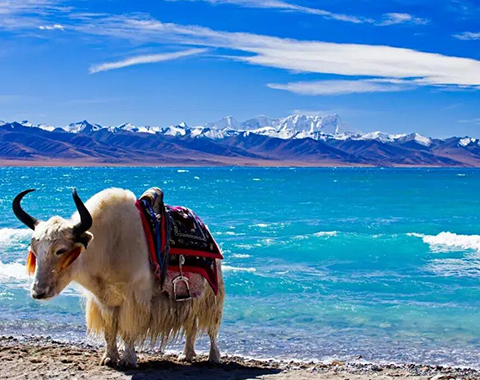
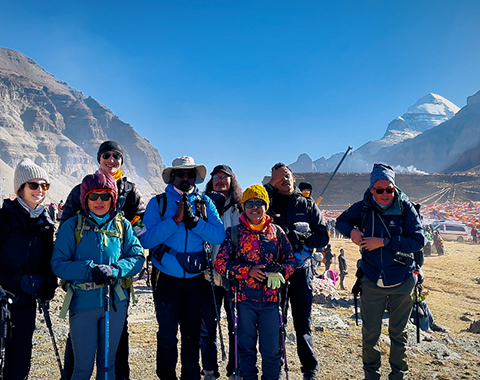
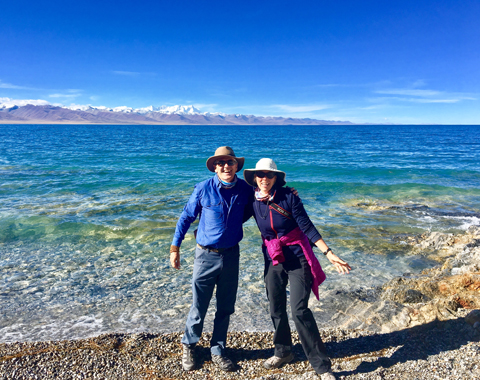

0 Comment ON "Tour Tibet in September"